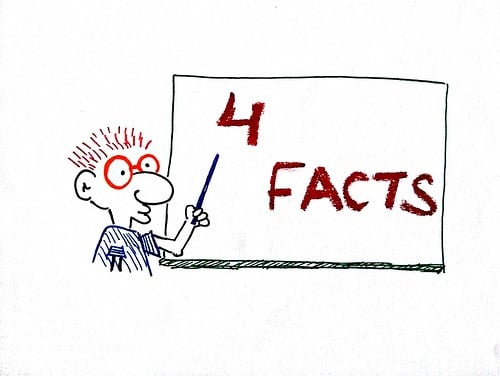Share article
I can't even begin to tell you how many times I have heard salespeople comment that presentation preparation is for the "rookies", the "amateurs". They look at the requirement to practice and prepare as almost a rite of passage, something they look back on doing themselves almost with disdain. In their minds, they seem to think they are beyond it; that they have "done this" so many times they are ready to go on a moment's notice.
They couldn't be more wrong.
Let me define what I mean by Practice and Preparation. Practice should be obvious. By practice, I mean role playing the presentation you are about to give, and practicing it several times before you go out in front of the prospect. I don't care how many times you have given it before; going through the repetition keeps you sharp and focused. Your prospect is giving you their time and an opportunity; don't waste either.
Preparation may be a little less obvious. By preparation, I mean knowing your audience as well as you possibly can to best anticipate their needs and interests. What particular challenges does their industry present to them? What do their size and available resources tell you about how you might be able to help? How do they define their success, and how might you help them achieve that success?
I was reminded of how rare practice and preparation are while attending a recent conference. The attendees were particularly excited to hear one of the scheduled speakers, someone who was a key executive of a distinguished international organization. Every attendee at the conference had used their services and were visibly excited to have the privilege of listening to one of its leaders present. They were anxious to learn more about how they could use the organization's services to change the course of their own companies.
Unfortunately, the speaker didn't live up to the audience's expectations. His presentation was a bit wandering and uninspiring.
Afterward, the attendees commented that it appeared as though he hadn't taken the time to practice for the hour or so he had on the agenda. Because of the high level of regard in which the group held this organization, they were expecting and hoping to be inspired by his presentation. Instead, the feeling was that he woke up that morning, saw the presentation on his calendar, and just kind of showed up.
As disappointed as the audience was in the less-than-dynamic presentation, their biggest frustration was that the speaker hadn't taken the time to prepare effectively to deliver the right content. What the speaker did deliver (as wandering and uninspired as it was) was a message that would have been a nice informational overview for someone just learning of their offering. He wasn't speaking to his audience in this case. This was a group who knew much more than the basics and was looking for advice and guidance as to how to use the services to drive significant change within their own companies.
What a missed opportunity for this speaker and his organization!
Not only did he not improve his brand through the presentation, it was tarnished a bit. And not only did he not capitalize on an opportunity to deliver meaningful, targeted content, he left many feeling an hour of their conference had been wasted. Not good for anyone.
I don't care how well you know your presentation and how good you are at its delivery or even how long you've been doing this, your next prospect deserves to have you at your sharpest and most focused. This means you practice, more than once, before sitting down in front of them.
Because selling should always be more about helping a prospect make a good buying decision than anything else, you owe it to the prospect to show up as prepared as you can possibly be. Prepared to make a significant difference in their business.
An opportunity to be in front of a prospect is a privilege. If you practice and prepare the way you should, you will leave the prospect feeling that the privilege was actually theirs.
Photo by Tsahi Levent-Levi.
